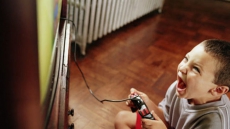How can similar setbacks produce different reactions for two people? It may come down to how much control we feel we have over what happened, according to research.
When setbacks occur in life, the level of control we perceive may even determine which of two distinct parts of the brain will handle the crisis.
Think of the student who failed an exam. He might feel he would not have failed if he had studied harder, studied differently - something under his control.
“That student resolves to try new study habits and work hard toward acing the next exam,” said Jamil Bhanji, a postdoctoral fellow at Rutgers University-Newark.
Functional magnetic resonance imaging (fMRI) used in the study showed activity in a part of the brain called the ventral striatum - which has been shown to guide goals based on prior experiences.
A different student might have failed the same test, but believes it happened because the questions were unfair or the professor was mean, things that he could not control.
The negative emotions produced by this uncontrollable setback may cause the student to drop the course.
“In cases like this, fMRI revealed that activity in the ventromedial prefrontal cortex (vmPFC), a part of the brain that regulates emotions in more flexible ways, is necessary to promote persistence,” Bhanji added.
"People whose jobs include delivering bad news should pay attention to these results, because their actions might influence how the news is received,” noted Mauricio Delgado, an associate professor of psychology.
Lessons from the study may even guide certain people toward giving up too soon on careers where they could do well.
“We wonder why there are fewer women and minorities in the sciences, for example. Maybe in cases like that it is fair to say there are things we can do to promote reactions to negative feedback that encourage persistence,” Bhanji explained.
The study was published in the journal Neuron.





